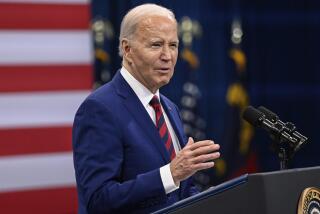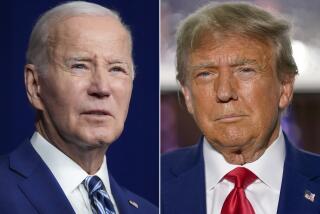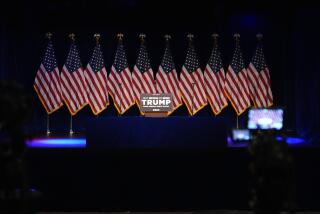Sanders wins West Virginia, vows to stay in race ‘until the last vote is cast’
Democratic presidential candidate Bernie Sanders addresses a campaign rally in Salem, Oregon, May 10, 2016.
Bernie Sanders renewed his commitment to campaign “until the last vote is cast” in the Democratic presidential race, saying his victory in Tuesday’s West Virginia primary showed economically distressed voters “want real change.”
Sanders, the Vermont senator, appeared headed toward a double-digit win in the night’s lone Democratic contest, a result that pointed to the liabilities of Democratic front-runner Hillary Clinton’s candidacy heading into the general election.
Republican Donald Trump cruised to victory in both Nebraska and West Virginia, contests sapped of any drama after a succession of make-or-break primaries in recent weeks cleared the GOP field. But exit polls in both states indicated some voter concern about Republican unity heading into the fall, underscoring the reservations about Trump expressed by party leaders in Washington.
Eight years ago, Clinton scored a decisive victory in West Virginia’s Democratic primary against then-Sen. Barack Obama. But this time, armed with an all-but-insurmountable lead in the delegate race, she campaigned sparingly in the state. Her comments about the coal industry have hurt her with residents and risks her standing in nearby general election bellwethers Ohio and Pennsylvania. Three in 10 Democratic voters in West Virginia said they lived in a household with a coal worker.
“She could not get elected dog catcher in this state,” said Dave Waldron, an independent who voted Tuesday for Trump. “Who in their right mind would vote for that lady?”
Trump wore a hard hat at a rally in West Virginia last week and mocked Clinton over saying in March that “we’re going to put a lot of coal miners and coal companies out of business” with alternative sources of energy.
“That’s a tough one to explain, wouldn’t you say?” he said.
Clinton apologized during one of her few stops in the state, saying she misspoke. But the comments were fresh on the mind of Democrats heading to the polls Tuesday.
Joe Sprouse, a registered Democrat and retired bank branch manager in Burnsville, said he was voting only in down-ticket races Tuesday and planned to vote for Trump in the fall.
“She’s against coal, and that’s what’s kept West Virginia going,” he said.
On Tuesday, Clinton nodded toward her ongoing primary battle with Sanders during a stop in Kentucky, which votes next week, even as it is increasingly clear her real focus is on the fight for swing voters in the fall.
She pitched a new proposal to make childcare more affordable in Lexington, indicative of what will be a largely policy-driven campaign in the coming weeks when Democrats in eight more states will go to the polls in primaries.
But at an evening rally at Louisville Slugger Field, she said she was looking forward to debating Trump in the fall.
“We’ve got to unify America,” she said. “Enough with the hate rhetoric and the insults. Let’s look for ways that we can work together.”
Most national polls show Clinton with an early advantage over Trump. But a trio of Quinnipiac University polls in key November battlegrounds showed tighter races. Clinton held narrow leads in Florida and Pennsylvania but trailed in Ohio, which borders both Kentucky and West Virginia.
Campaigning in Stockton, Calif., on Tuesday morning, Sanders highlighted the new polls, which also showed him in a stronger position against Trump than Clinton.
“There is no question about which campaign is energizing the American people,” Sanders said. “If you want the strongest candidate to defeat Donald Trump, that’s us.”
Sanders has acknowledged the narrow path he has to claim the nomination but nonetheless insisted he would campaign through the end of the primaries in June, including California’s on June 7, and seek to make his case to delegates at the Democratic convention in July.
“We are in this campaign to win,” Sanders said in a rally late Tuesday in Salem, Ore. “… And we are going to fight for every last vote.”
Mo Elleithee, a top spokesman for Clinton’s campaign in 2008, recalled how the campaign then worked to make the same case then as she won six of the last nine major primaries.
“But at a certain point in the campaign, math beats momentum,” he said. “And it happened in this race far earlier than it did in ’08.”
Given Clinton’s own experience in Sanders’ position, she recognizes the need to treat both Sanders and the remaining Democratic voters with respect, Elleithee said.
“However, she owes it to her party to not allow Donald Trump to get a huge head start on her,” he added.
Trump faces an uncertain reception this week from key GOP leaders. On Thursday, he will sit down with House Speaker Paul D. Ryan (R-Wis.), who has said he is not ready to support the presumptive nominee, as well as Senate Majority Leader Mitch McConnell of Kentucky.
More than one-third of Nebraska Republican voters surveyed in exit polls said they would be scared or concerned if Trump were elected president, and nearly half said the GOP was unlikely to unite. Only 1 in 10 West Virginia Republican voters said the party was united now, but 3 in 5 predicted that it would unite by November.
A former Trump rival, Sen. Ted Cruz, returned to the Senate on Tuesday and picked up right where he left off — promising to fight the GOP establishment on behalf of the conservative movement.
Cruz said he had “no interest” in making a third-party run for the White House and cooled talk of restarting his presidential campaign. But he also made no move toward backing Trump, saying “there will be plenty of time” for voters to make up their minds.
Speaking on CNN, former candidate Sen. Marco Rubio (R-Fla.) also was reluctant to throw his full support behind Trump.
“I intend to live up to the pledge that we made,” he said, referring to a document Republican candidates signed vowing to back the eventual nominee. “But, that said, these concerns that I have about policy, they remain.”
Finnegan reported from Burnsville and Memoli from Washington. Los Angeles Times staff writers Melanie Mason and Lisa Mascaro contributed to this report.
More to Read
Start your day right
Sign up for Essential California for news, features and recommendations from the L.A. Times and beyond in your inbox six days a week.
You may occasionally receive promotional content from the Los Angeles Times.








